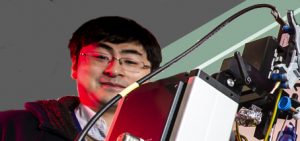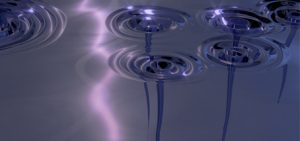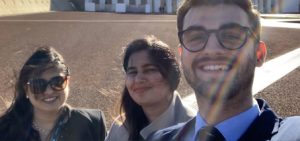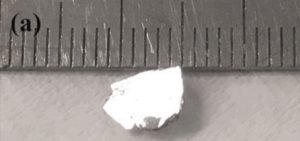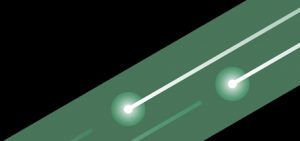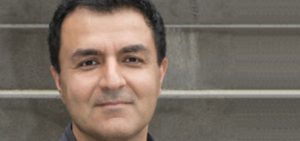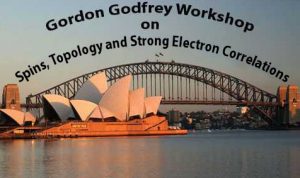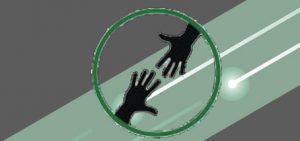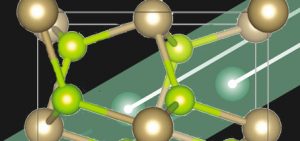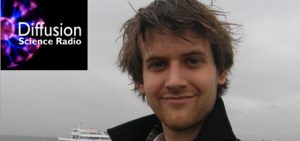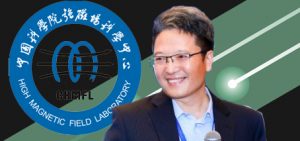Engage
See news from around FLEET, below
Catch up on all past issues of FLEET News newsletter
FLEET News
Superfluids were first discovered as a special quantum state of liquid helium, later dubbed as “Superfluid helium” once chilled past -269 degree celsius, starts to manifest properties that do not occur in other fluids. Penetration through a solid with nano-pores is one of the three fascinating macroscopic phenomena that are well known in superfluids such as liquid helium. It is …
FLEET continues to build links with other science organisations within Australia to further the reach of science, advance equity issues and develop future leaders, for example: Sponsoring childcare at the annual Science Meets Parliament, with Science and Technology Australia (STA) Running pitch training with two other ARC Centres of Excellence Co-sponsoring Physics in the Pub with three ARC Centres of …
Self-forming quantum liquids on a silicon chip could revolutionise our understanding of turbulence and enable new technologies for precision navigation. Researchers at The University of Queensland have developed the first methods to bring together quantum liquids with modern silicon-chip based technology, allowing the observations of nanoscale quantum turbulence that mirrors the behaviour of a cyclone. Professor Warwick Bowen, from UQ’s …
FLEET had a team of three researchers at Science meets Parliament (SMP) in November, talking to parliamentarians and other scientists from around the country, and perfecting the art of pitching to politicians. FLEET’s gun team were: Hareem Khan (RMIT), Oliver Stockdale (UQ) and Semonti Bhattacharyya (Monash). Science Meets Parliament is an annual meeting of Australia’s policy-makers with leading and emerging …
Since their discovery in 2006, topological insulators have been widely discussed as a promising avenue for energy efficient electronics. Their unique high mobility edge states have a form of “quantum armour” that protects them from electron-scattering events that would otherwise produce waste heat. Unfortunately, practical applications of topological insulators have been severely limited by the small electronic bandgaps in most …
Welcoming new FLEET committee Chairs: Jeff Davis (Swinburne University of Technology) Equity and Diversity Committee Meera Parish (Monash Science) Outreach Jared Cole (RMIT University) Education and Training Torben Daeneke (RMIT) Industry relations David Cortie (University of Wollongong) Communications Thanks in particular to AIs Torben Daeneke and David Cortie for taking on these extra responsibilities. And huge thanks to the outgoing …
FLEET’s Kourosh Kalantar-zadeh (UNSW/RMIT) has been awarded the 2019 Walter Burfitt Prize by the Royal Society of NSW, recognising Kourosh’s excellent research in liquid metals, atomically thin materials and ingestible sensors. The Walter Burfitt Prize is awarded every three years for research in pure or applied science deemed of the highest scientific merit. This year’s Royal Society prize recognises Professor Kalantar-Zadeh’s …
Yesterday’s ARC Discover Project announcement saw FLEET research and researchers across three Australian universities awarded additional funding. Across five separate grants, over $2.6m new research funding went to projects and facilities led by FLEET researchers, complementing FLEET’s search to develop ultra-low energy electronics and boost related areas of research. Australia’s Minister for Education Dan Tehan yesterday announced almost $285 million …
Almost 120 researchers gathered in UNSW last week to discuss spin and strong-electron correlations in the university’s biennial Gordon Godfrey Workshop. The 2019 Gordon Godfrey Workshop on Spins and Strong Correlations was held at UNSW’s School of Physics for five days from 25 to 29 November. The Gordon Godfrey Workshops, which have been running since 1991, provide a forum for Australian and international researchers to exchange ideas and …
FLEET tops up external funding to build leadership skills Two of FLEET’s six strategic priorities are developing the next generation of science leaders, and fostering equity and diversity in STEM. Establishing career support initiatives for women in FLEET is an important milestone towards achieving each of these goals. FLEET will provide an environment for our early-career women to thrive and …
FLEET’s Matt Davis (node leader University of Queensland) discussed the future of science with some of Australia’s future scientists this month at Ipswich State High School, with local MP Shayne Neumann and James Rasmussen of Origin Energy.
Congratulations to FLEET Chief Investigators: Kourosh Kalantar-zadeh (UNSW and RMIT) in chemistry, engineering, material science and medical devices Qiaoliang Bao (Monash University) in 2D materials science, graphene, photonics, optoelectronics and optical comms The Clarivate Analytics list identifies researchers ranking in the top 1% by citations for their field. The citation identifies influential researchers as determined by their peers around the …
first theoretical demonstration of both in-plane and out-of-plane spin highly energy- and direction- dependent behaviour discovered interplay between surface and bulk states plays a critical role in surface spin texture A Monash University study revealing new spin textures in pyrite could unlock these materials’ potential in future spintronics devices. The study of pyrite-type materials provides new insights and opportunities for …
FLEET’s Sam Bladwell (UNSW) was recently interviewed by Ian Woolf on Diffusion Radio, discussing the ICT energy issue that drives FLEET’s research as well as his own theoretical studies into spin. Listen to: Future low-energy electronics Battling jetlag, Sam describes spintronics and the need for low-energy electronics (from 6:35min) Spins and valleys Sam describes how his theoretical studies dovetail with …
FLEET extends a warm welcome to Professor Mingliang Tian, who joins the Centre as a new Partner Investigator. Professor Tian is vice-director of the Chinese Academy of Science’s High Magnetic Field Laboratory in Anhui province, China, which becomes a new partner organisation for FLEET. At the CAS, Professor Tian’s group studies on low-dimensional electronic systems and artificial nanostructures such as …

